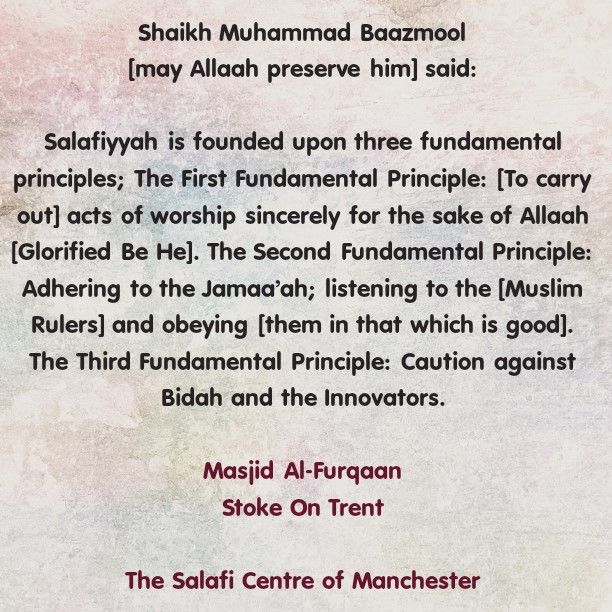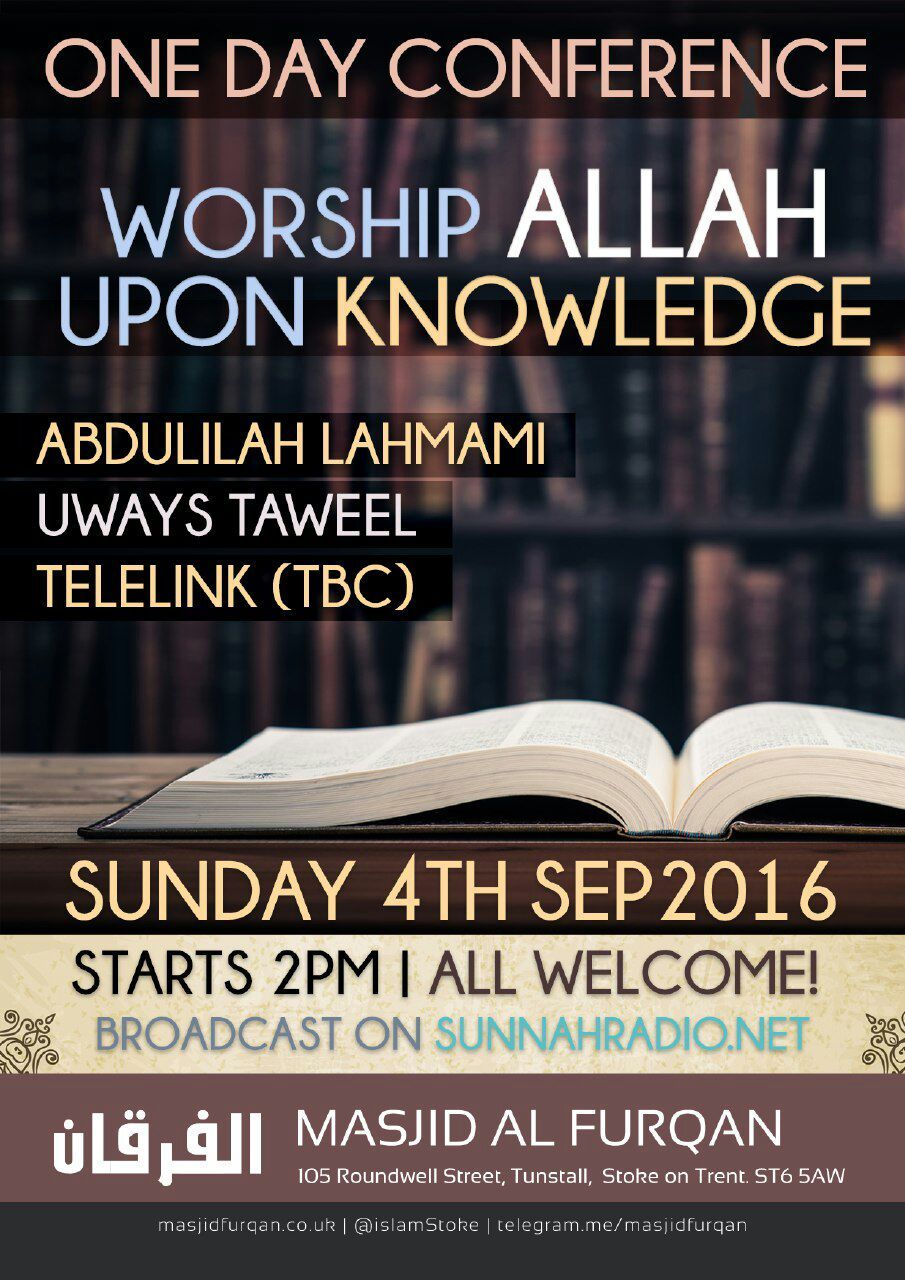Salafiyyah is founded upon Three Fundamental Principles
In The Name of Allaah, The Most Merciful, The Bestower of Mercy
Shaikh Muhammad Baazmool (may Allaah preserve him) stated:
Salafiyyah is founded upon three fundamental principles; The First Fundamental Principle: (To carry out) acts of worship sincerely for the sake of Allaah (Glorified Be He). The Second Fundamental Principle: Adhering to the Jamaa’ah; listening to the (Muslim Rulers) and obeying (them in that which is good). The Third Fundamental Principle: Caution against Bidah and the Innovators. These three fundamental principles are established by way of evidence in the narration of Irbaad Ibn Saariyah (radiyallaahu-anhu) who said:
”The Messenger of Allaah (sallal-laahu-alayhi-wsallam) gave us an admonition that made our hearts fearful and our eyes tearful. We said, “O Messenger of Allaah, it is as if this were a farewell sermon, so advise us.”He said, “I enjoin you to have Taqwa of Allaah and that you listen and obey, even if an Abyssinian slave is place in charge over your affairs; for indeed he who lives long among you will see many differences. Beware of newly invented matters (in the religion), for indeed it is misguidance. So whoever among you reaches that then upon him is (to follow) my Sunnah and the Sunnah of the rightly guided khulafaa and bite on to it with your molar teeth.” [1]
Suhail Ibn Abee Saalih narrated from his father, who narrated from Abu Hurairah (radiyallaahu-anhu) that the Messenger of Allaah (sallal-laahu-alayhi-wasallam said: Verily Allaah loves three things for you and he hates three things for you. He loves that you worship Him alone and that you do not join anyone else in your worship of him and that you do not worship other than him; He loves that you hold tight altogether to the rope of Allaah and that you do not be divided; and that you advice the one placed in charge over your affairs. And Allaah hates for you Qeel Wa Qaal (he said and she said spreading rumours); He hates for you the wasting of wealth and He hates for you excessive questioning (i.e. questioning devoid of benefit). [2]
These three affairs (i.e. Tawheed; obedience to the rulers and caution against bidah and the innovators) combine that which establishes the religious and worldly affairs of the people. Shaikhul Islaam Muhammad Ibn Abdul Wahhaab (rahimahullaah said: Defects have not occurred in the religion of the people and their worldly affairs, except as a result of defects in these three affairs or in some of them. [3]
[1] [Hasan hadeeth. Reported by Imaam Ahmad 4/126, 127 and declared authentic by Imaam Albaani in Irwaa Al-Ghaleel 8/107. Number 2455]
[2] [Recorded by Imaam Maalik in Muwatta 1863. Muslim 1715]
[3] [Al-Manhajus Salafi pages 8-10…abridged and slightly paraphrased]






